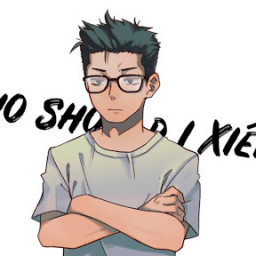A. Peter invited Sara to his birthday party.
Ôn thi vào 10
Đúng 1
Bình luận (0)
Các câu hỏi tương tự
I hope __________ to her birthday party next week.
a.to invite b.inviting c.being invited d.to be inveted
64. If i were in your shoes, i would accept his offer.
A. Accepting his offer is good, i believe.
B. I would like to accept his offer if i wore your shoes.
C. I advise you to accept his offer.
D. I would like to be in your shoes so i accrpt his offer.
Part 7: Read the following passage and decide if the statements that follow TRUE or FALSE. (1.0 m)Earth Day is a birthday! Just like a birthday is a special day to celebr a person, Earth Day is a special day that celebrates the Earth. It is a day to remember to take care of our planet.Earth Day was born on April 22,1970, in San Francisco, California. It is now the largest, most celebrated environmental event worldwide. Every year, many countries around the world join together in the celebration...
Đọc tiếp
Part 7: Read the following passage and decide if the statements that follow TRUE or FALSE. (1.0 m)
Earth Day is a birthday! Just like a birthday is a special day to celebr a person, Earth Day is a special day that celebrates the Earth. It is a day to remember to take care of our planet.
Earth Day was born on April 22,1970, in San Francisco, California. It is now the largest, most celebrated environmental event worldwide. Every year, many countries around the world join together in the celebration of Earth Day on April 22nd. On Earth Day, people celebrate by doing things that help to protect the environment. Some things people do to help the Earth are: turn off the lights to conserve energy, plant trees, recycle, and pick up garbage in their communities.
You don't have to wait for Earth Day though, you can help the environment every day!
1. The first Earth Day was celebrated around the world. _____
2. Earth Day is a day to take care of our planet, Earth. _____
3. Every year, only a few countries celebrate Earth Day. _____
4. Turning lights off is a way to save energy. _____
1. Jean, have you seen my gloves? Tom asked. A. Tom asked Jean whether/if she had seen his gloves.B. Tom asked Jean whether/if had you seen his gloves. C. Tom asked Jean whether/if had she seen his gloves. D. Tom asked Jean whether if she had seen her gloves.2. “Dont leave the window open, Ann, I said. A. I told Ann does not leave the window open. B. I told Ann not to leave the window open. C. I told Ann to leave the window open. D. I told Ann not leave the window open. 3. Ill have a cup of coff...
Đọc tiếp
1. "Jean, have you seen my gloves?" Tom asked.
A. Tom asked Jean whether/if she had seen his gloves.
B. Tom asked Jean whether/if had you seen his gloves.
C. Tom asked Jean whether/if had she seen his gloves.
D. Tom asked Jean whether if she had seen her gloves.
2. “Don't leave the window open, Ann", I said.
A. I told Ann does not leave the window open.
B. I told Ann not to leave the window open.
C. I told Ann to leave the window open.
D. I told Ann not leave the window open.
3. "I'll have a cup of coffee with you," she said.
A. She said that she have a cup of coffee with me.
B. She said that she had a cup of coffee with me.
C. She said that she would have a cup of coffee with me.
D. She said that she would have a cup of coffee with you.
4. “I’ll pay him if can" she said.
A. She said that she will pay him if she could.
B. She said that I would pay him if I could.
C. She said that she would pay him if she could.
D. She said that she would pay him if she can.
5. “What are you going to do next summer?" she asked.
A. She asked us what we were going to do the following summer.
B. She asked us what I was going to do the following summer.
C. She asked us what were we going to do the following summer.
D. She asked us what we was going to do the following summer.
6. “I’ll phone you tomorrow," he told Jack.
A. He told Jack that I would phone him the following day.
B. He told Jack that I will phone him the following.
C. He told Jack that he would phone him tomorrow.
D. He told Jack that he would phone him the following day.
7. "Can I sit beside you, Jean?" Tom asked.
A. Tom asked Jean whether/if I could sit beside her.
B. Tom asked Jean whether/if could he sit beside her.
C. Tom asked Jean whether if he could sit beside her.
D. Tom asked Jean whether/if he could sit beside you.
8. "I want a bike for my birthday," he said.
A. He said that he wanted a bike for his birthday.
B. He said that I wanted a bike for his birthday.
C. He said that he wants a bike for his birthday.
D. He said that he wanted a bike for my birthday.
9. "Don't keep the door locked," he said to us.
A. He told us not to keep the door locked.
B. He told us do not keep the door locked.
C. He told us not keep the door locked.
D. He told us to not keep the door locked.
10. “How long are you going to stay?" I asked him.
A. I asked him how long I was going to stay.
B. I asked him how long you were going to stay.
C. I asked him how long were you going to stay.
D. I asked him how long he was going to stay.
Peter ... have lunch in the school canteen when he was in grade 6.
A. was used to B. is used to C. used to D. gets used to
although peter tried hard , he could not start his car (matter)
Viết lại câu
1. ''What can you see in this picture?'' Nam asked his friend.
=> Nam wanted to know
2. Many children have to work hard to earn money to support their families.
=> I
3. She is a better teacher of English than her colleagues.
=> She can teach
4. In spite of running fast, he couldn't catch the last bus.
=> Although
peter found it diffirent to learn Vietnamese (Get)=>
Tìm lỗi sai: He has hardly come back his home village,hasn't he? 2.Would you like taking part in the English club with me? 3.What are you doing,Mom?I am listening to the weather forecast in TV















